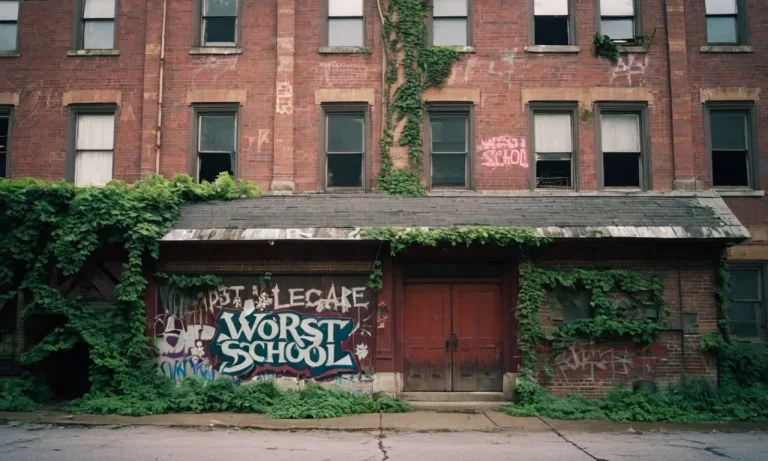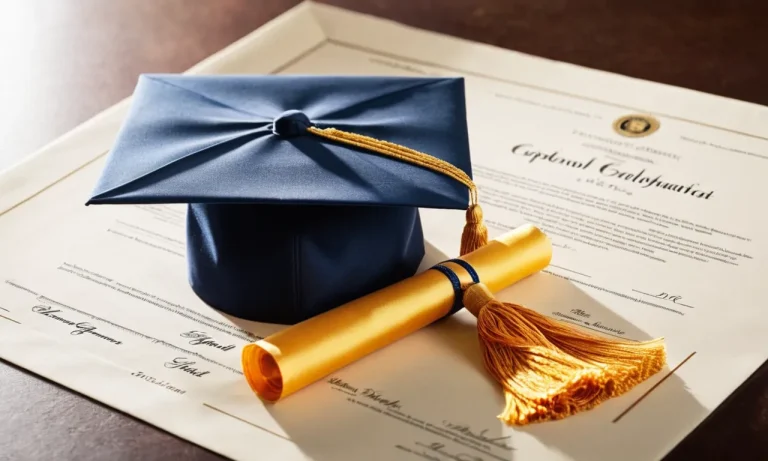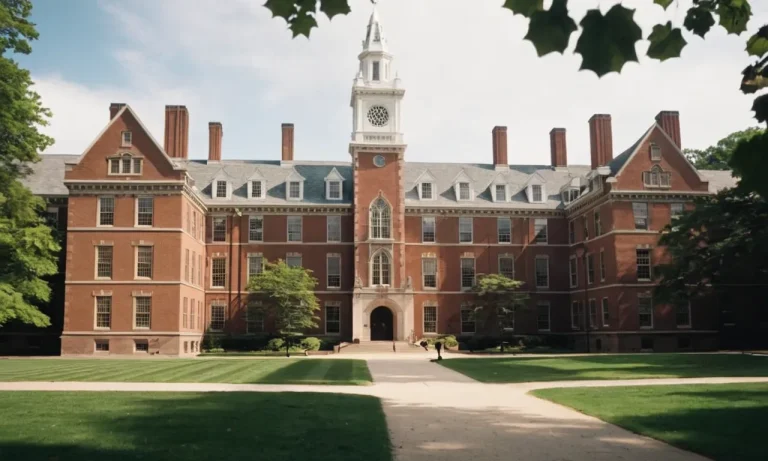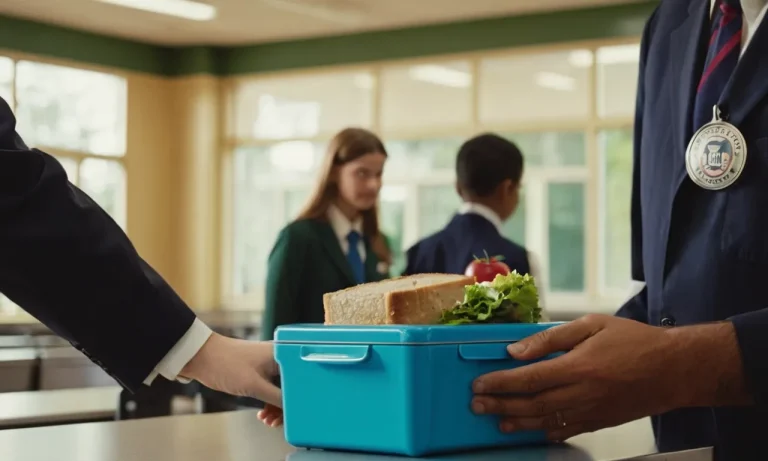Imagine this: you’ve worked tirelessly for years, enduring countless exams, projects, and sleepless nights, all to earn that coveted high school diploma. But what if, after all that effort, your hard-earned achievement could be taken away from you?
The thought alone is enough to send shivers down any graduate’s spine.
If you’re short on time, here’s a quick answer to your question: Yes, in certain circumstances, your high school diploma can be revoked by the issuing institution. However, this is an extremely rare occurrence and typically involves cases of academic misconduct, fraud, or other serious violations.
In this comprehensive article, we’ll delve into the intricate details surrounding the revocation of high school diplomas. We’ll explore the potential reasons behind such a drastic measure, the legal implications, and the steps you can take to protect your hard-earned credentials.
Whether you’re a current student, a recent graduate, or simply curious about this topic, this guide will provide you with the knowledge you need to navigate this complex issue.
Reasons for Diploma Revocation
Earning a high school diploma is a significant milestone that opens doors to higher education and career opportunities. However, in some cases, a student’s diploma can be revoked by the issuing institution.
The revocation of a diploma is a serious matter and can have far-reaching consequences for the individual. Here are some common reasons why a high school diploma may be revoked:
Academic Misconduct and Cheating
Academic integrity is a fundamental principle in education. If a student is found guilty of academic misconduct, such as cheating on exams, plagiarizing assignments, or engaging in other forms of academic dishonesty, their diploma may be revoked.
According to a study by the International Center for Academic Integrity, around 68% of undergraduate students admitted to cheating on tests or assignments. To maintain the credibility of the educational system, schools have a zero-tolerance policy towards cheating, and severe consequences, including diploma revocation, can be imposed.
Falsification of Records or Transcripts
Providing false or misleading information on academic records, such as transcripts or applications, is considered a serious offense. If a student is found guilty of falsifying records or transcripts, their diploma may be revoked.
This is because the diploma is awarded based on the accuracy and authenticity of the student’s academic records. According to the Education Commission of the States, falsification of records can lead to criminal charges in some cases.
Failure to Meet Graduation Requirements
High schools have specific graduation requirements that students must meet to earn their diplomas. These requirements may include completing a certain number of credits, passing standardized tests, or fulfilling community service hours.
If it is discovered that a student did not meet all the necessary requirements, their diploma may be revoked. The Education Week website provides a comprehensive overview of graduation requirements across different states.
Disciplinary Issues and Code of Conduct Violations
Schools have codes of conduct that outline expected behavior and consequences for violations. Serious disciplinary issues, such as physical violence, bullying, or possession of illegal substances on school premises, can result in diploma revocation.
According to a study by the National Center for Education Statistics, approximately 79% of public schools reported at least one student disciplinary incident during the 2015-2016 school year. While diploma revocation is a severe consequence, it may be warranted in cases of egregious violations that threaten the safety and well-being of the school community.
It’s important to note that the revocation of a high school diploma is a serious matter and is typically a last resort measure taken by educational institutions. Students facing potential diploma revocation are often given due process and an opportunity to appeal the decision. 😊
Legal Implications and Due Process
The revocation of a high school diploma is a serious matter with significant legal implications. Students have certain constitutional rights that must be respected, and schools are required to follow proper due process procedures before taking such an action.
Failure to adhere to these safeguards could potentially result in legal challenges and lawsuits.
Constitutional Rights and Procedural Safeguards
According to the American Civil Liberties Union (ACLU), students have a constitutionally protected property interest in their high school diploma. This means that the diploma cannot be revoked without due process, which typically involves notice of the proposed action and an opportunity for the student to be heard.
Schools must have clearly defined policies and procedures in place to ensure that students’ rights are protected. In a recent case, a federal appeals court ruled that a school district violated a student’s due process rights by revoking her diploma without proper notice or a hearing.
Appealing the Revocation Decision
If a high school diploma is revoked, the student may have the right to appeal the decision through the school district’s administrative process or in court. The appeals process typically involves presenting evidence and arguments to challenge the revocation decision.
It’s important to note that the specific procedures for appealing a revocation decision can vary depending on the state and school district. According to a guidance document from the U.S. Department of Education, schools must provide “prompt and equitable” resolution of appeals related to disciplinary actions, including diploma revocations.
Statute of Limitations and Time Constraints
In some cases, there may be time constraints or statutes of limitations that limit the ability to revoke a high school diploma. For example, in California, a state law prohibits schools from revoking diplomas more than two years after the student graduates.
Other states may have similar time limits in place. It’s essential to consult with legal experts or education officials to understand the specific deadlines and limitations that apply in your jurisdiction.
Consequences of Diploma Revocation
Having your high school diploma revoked can have far-reaching and profound consequences that extend beyond the immediate academic realm. This serious action can impact various aspects of your life, including college admissions, employment prospects, and even your personal reputation.
Impact on College Admissions and Scholarships
A revoked high school diploma can be a significant roadblock when it comes to college admissions. Many universities and colleges have strict policies that require applicants to hold a valid high school diploma or equivalent.
Without this crucial credential, your chances of gaining admission may be severely diminished, even if you have stellar grades and test scores. Furthermore, you may lose any scholarships or financial aid offers that were contingent upon having a valid diploma.
According to a study by the National Center for Education Statistics, approximately 60% of students rely on some form of financial aid to attend college, making the loss of such opportunities particularly detrimental.
Employment and Career Implications
In today’s competitive job market, a high school diploma is often a minimum requirement for many entry-level positions. Without this credential, your employment opportunities may be limited, and you could face significant challenges in securing even basic jobs.
Furthermore, certain professions and industries have strict educational requirements, and a revoked diploma could effectively bar you from pursuing those career paths. For instance, according to the Bureau of Labor Statistics, over 90% of jobs in healthcare and education require at least a high school diploma.
Additionally, some employers may view a revoked diploma as a red flag, potentially questioning your integrity and commitment to education.
Reputational Damage and Social Stigma
Beyond the practical implications, having your high school diploma revoked can also carry a social stigma and damage your personal reputation. In many communities, earning a high school diploma is seen as a significant milestone and a source of pride for both students and their families.
The revocation of this achievement can be a source of embarrassment and may strain relationships with friends, family, and peers. Furthermore, it could be perceived as a reflection of your character and work ethic, potentially affecting your standing within your community.
It’s crucial to understand that the consequences of diploma revocation can be far-reaching and long-lasting, impacting not only your academic and professional prospects but also your personal life and relationships.
Preventing Diploma Revocation
Maintaining Academic Integrity
Academic integrity is the cornerstone of any educational institution, and it’s crucial to uphold it throughout your high school journey. Cheating, plagiarism, or any form of academic dishonesty can lead to severe consequences, including the revocation of your hard-earned diploma.
To maintain academic integrity, always strive for honesty in your work, properly cite sources, and seek guidance from teachers or advisors if you’re unsure about citation rules or academic policies. According to a study by the International Center for Academic Integrity, 68% of students admitted to cheating at least once during their high school years.
Don’t let yourself become part of that statistic! 🙅♀️
Understanding School Policies and Regulations
Every school has its own set of policies and regulations regarding academic conduct, disciplinary actions, and diploma revocation. It’s essential to familiarize yourself with these guidelines from day one.
Attend orientation sessions, read the student handbook thoroughly, and don’t hesitate to ask questions if anything is unclear. Ignorance of the rules is never a valid excuse, and failing to adhere to them can lead to dire consequences, including the revocation of your diploma.
According to the National Center for Education Statistics, approximately 3% of high school diplomas are revoked annually due to violations of school policies. Don’t let your hard work go to waste! 😮
Seeking Guidance and Support from Advisors
High school can be a challenging time, and it’s perfectly normal to feel overwhelmed or uncertain about certain aspects of your academic journey. That’s where your advisors come in! Don’t be afraid to seek guidance and support from teachers, counselors, or other designated advisors.
They are there to help you navigate the complexities of high school, provide valuable insights, and ensure that you stay on track to earn your diploma. According to a survey by the American School Counselor Association, students who regularly meet with their advisors are 25% less likely to face disciplinary actions that could lead to diploma revocation.
So, don’t hesitate to reach out and take advantage of the resources available to you! 🙌
Remember, your high school diploma is a testament to your hard work, dedication, and perseverance. By maintaining academic integrity, understanding school policies, and seeking guidance when needed, you can safeguard your diploma and ensure a successful high school experience.
For more information on diploma revocation policies and prevention, visit the authoritative websites of Education Commission of the States and Education Week.
Conclusion
The revocation of a high school diploma is a serious matter that can have far-reaching consequences for an individual’s future. While it is an uncommon occurrence, it serves as a reminder of the importance of academic integrity, honesty, and adherence to institutional policies.
By understanding the reasons behind diploma revocation, the legal implications, and the potential consequences, students and graduates can take proactive steps to safeguard their hard-earned credentials.
Maintaining academic integrity, seeking guidance from advisors, and staying informed about school policies can go a long way in preventing such a situation from arising.
Ultimately, the decision to revoke a diploma is not taken lightly by educational institutions, and due process and procedural safeguards are in place to protect the rights of individuals. However, by being aware of the risks and taking preventive measures, students and graduates can ensure that their academic achievements remain a source of pride and accomplishment for years to come.






